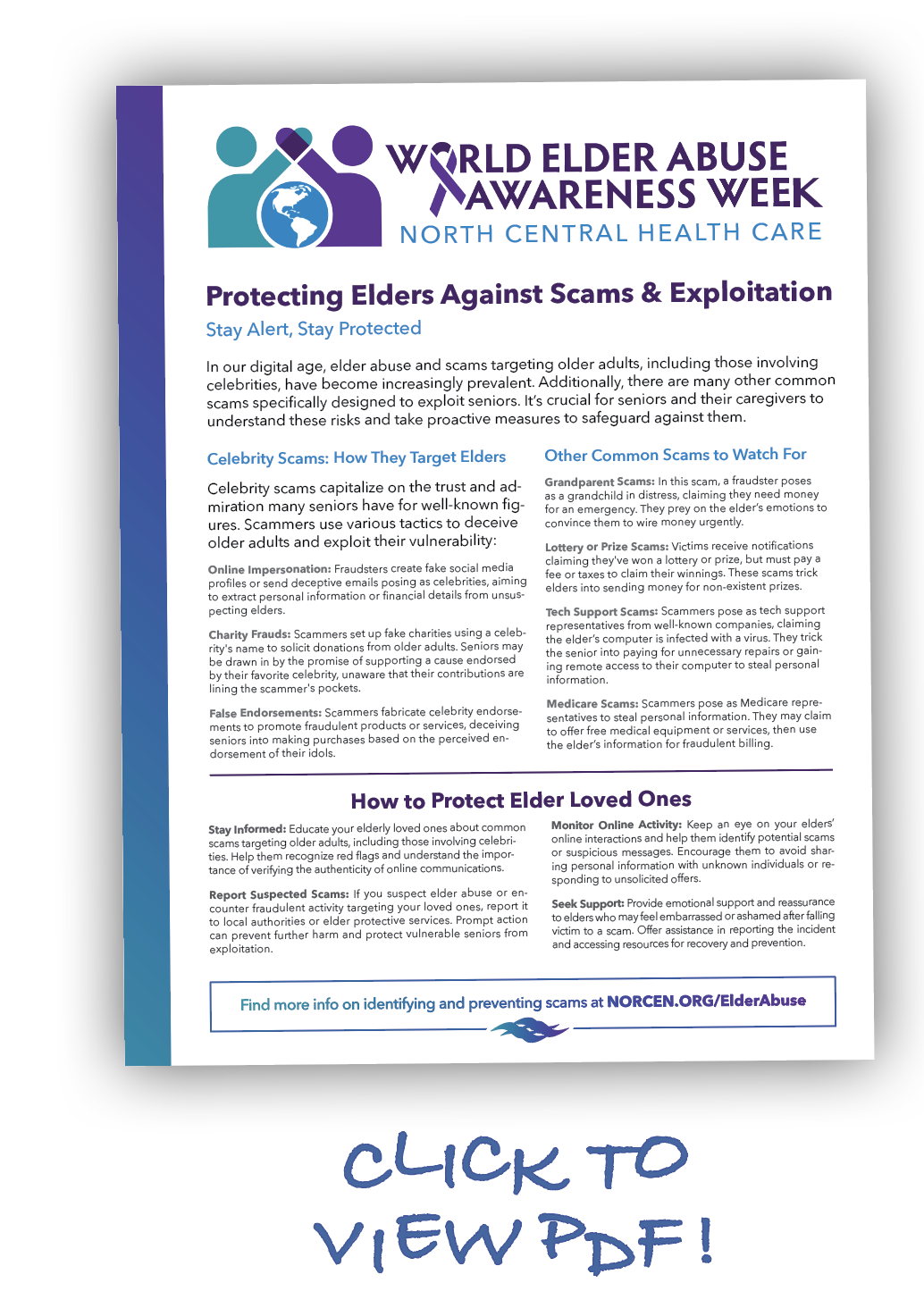Protecting Elders Against Scams
 Scams & Exploitation
Scams & Exploitation
Stay Alert, Stay Protected
In our digital age, elder abuse and scams targeting older adults, including those involving celebrities, have become increasingly prevalent. Additionally, there are many other common scams specifically designed to exploit seniors. It’s crucial for seniors and their caregivers to understand these risks and take proactive measures to safeguard against them.
Celebrity Scams: How They Target Elders
Celebrity scams capitalize on the trust and admiration many seniors have for well-known figures. Scammers use various tactics to deceive older adults and exploit their vulnerability:
- Online Impersonation: Fraudsters create fake social media profiles or send deceptive emails posing as celebrities, aiming to extract personal information or financial details from unsuspecting elders.
- Charity Frauds: Scammers set up fake charities using a celebrity's name to solicit donations from older adults. Seniors may be drawn in by the promise of supporting a cause endorsed by their favorite celebrity, unaware that their contributions are lining the scammer's pockets.
- False Endorsements: Scammers fabricate celebrity endorsements to promote fraudulent products or services, deceiving seniors into making purchases based on the perceived endorsement of their idols.
Other Common Scams to Watch For
- Grandparent Scams: In this scam, a fraudster poses as a grandchild in distress, claiming they need money for an emergency. They prey on the elder’s emotions to convince them to wire money urgently.
- Lottery or Prize Scams: Victims receive notifications claiming they've won a lottery or prize, but must pay a fee or taxes to claim their winnings. These scams trick elders into sending money for non-existent prizes.
- Tech Support Scams: Scammers pose as tech support representatives from well-known companies, claiming the elder’s computer is infected with a virus. They trick the senior into paying for unnecessary repairs or gaining remote access to their computer to steal personal information.
- Medicare Scams: Scammers pose as Medicare representatives to steal personal information. They may claim to offer free medical equipment or services, then use the elder’s information for fraudulent billing.
How to Protect Elder Loved Ones
- Stay Informed: Educate your elderly loved ones about common scams targeting older adults, including those involving celebrities. Help them recognize red flags and understand the importance of verifying the authenticity of online communications.
- Report Suspected Scams: If you suspect elder abuse or encounter fraudulent activity targeting your loved ones, report it to local authorities or elder protective services. Prompt action can prevent further harm and protect vulnerable seniors from exploitation.
- Monitor Online Activity: Keep an eye on your elders’ online interactions and help them identify potential scams or suspicious messages. Encourage them to avoid sharing personal information with unknown individuals or responding to unsolicited offers.
- Seek Support: Provide emotional support and reassurance to elders who may feel embarrassed or ashamed after falling victim to a scam. Offer assistance in reporting the incident and accessing resources for recovery and prevention.
Additional Resources
Protect Yourself From Financial Scams
The Phone Scam: What Your Should Know